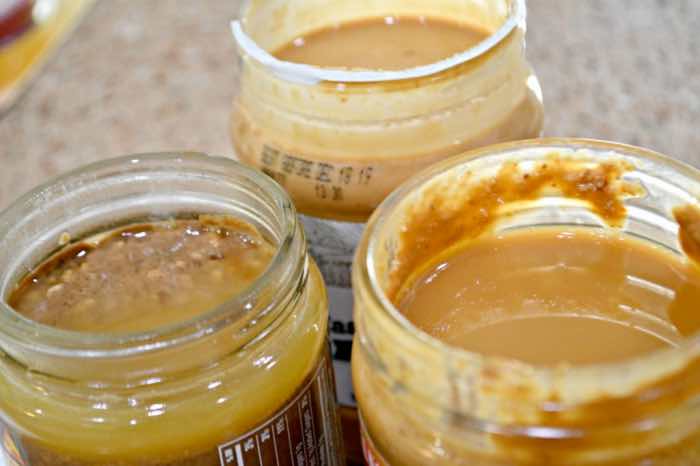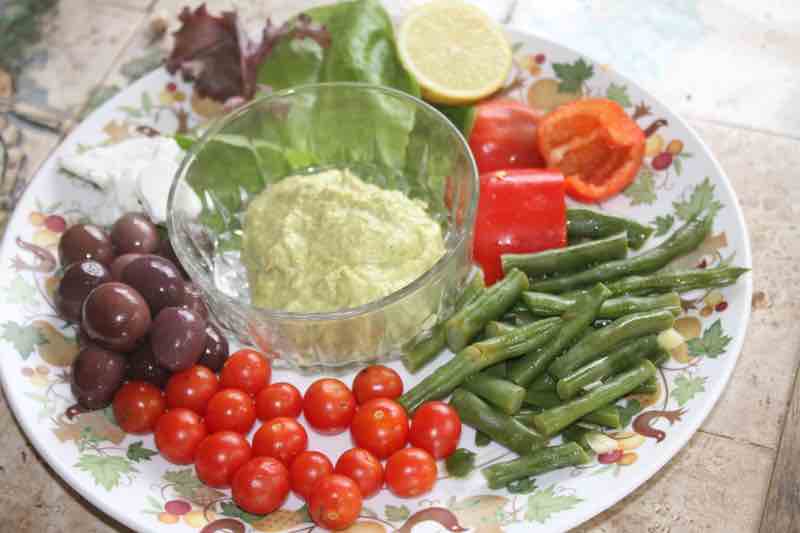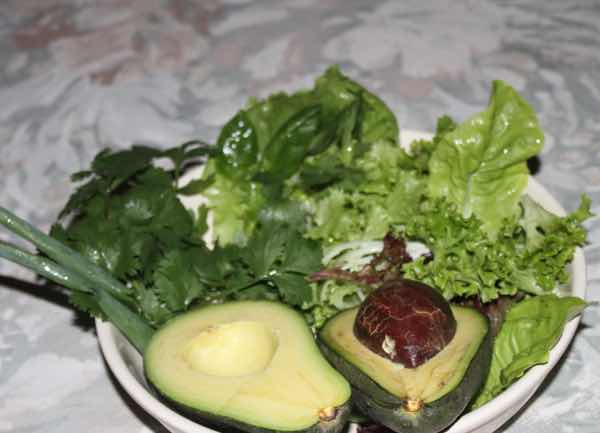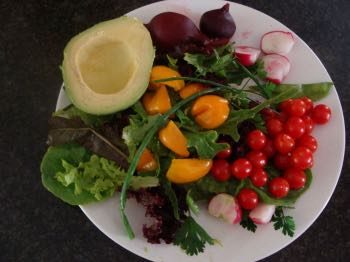- Bernard Preston homepage
- Herbs Spices
- What Is Stabilizer in Food
What is stabilizer in food?
What is stabilizer in food is a question that doesn't disturb most folk but it should; it correlates strongly with pain, disease and disability.
The prevailing thought about food is that it must "deliver an outstanding experience to the customer." Whether it's nutritious, makes you obese or is known to cause disease is of no great consequence; all that is important is that our meals should look and taste good.
Take peanut-butter for example. Does it have a layer of oil on top? One that you must fork into the solids. That's not an outstanding experience, is it? So food companies should add a stabilizer to enhance our pleasure of eating these nutritious, tasty condiments.
They must preserve the original texture so there is no separation of the oil from the solids; or the watery fraction. It should look good.
 Oil separating on peanut butter
Oil separating on peanut butterSome of these food stabilizers are natural compounds; like pectin and lecithin. Others are chemicals like sodium pyrophosphate. Yes, indeed they may set your body on fire.
" The word pyro is a combining form meaning fire, heat and high temperature.”
- Dictionary.com
Sodium pyrophosphate
Sodium pyrophosphate is a common chemical stabilizer that is added to processed food as a thickener, emulsifier and in processed meat as a preservative; it is often used in bacon for example. The USDA reckons that it is safe for human consumption.
Phosphate as found naturally in our meals is perfectly safe; there is no research suggesting otherwise. But when added as a chemical in colas and ultra-processed foods that is an entirely different story; it causes osteoporosis.
Researchers measured the blood calcium and intestinal juices from a woman chronically low in the mineral three hours after consuming 1L of a common cola[3] which was strongly acidic with a pH of 1.8.
A decrease in the calcium concentration in both the intestinal fluids and blood was found. Colas have a strong, sudden acidifying effect on the stomach and duodenal contents; coupled with the high phosphate content that drastically reduces the availability of the mineral.
Kidney and cardiovascular disease
Researchers publishing in Deutsches Arzteblatt state that an increased level of phosphate in the blood has been identified as a strong predictor of death in those suffering from chronic kidney disease, cardiovascular conditions and general mortality.
Given the soaring rates of diabetes any phosphate added to food is certainly a health risk for those suffering from raised blood glucose.
What is a stabilizer in food? Companies are not required to label which chemicals have been used to emulsify and preserve our meals; should it be sodium pyrophosphate then it certainly would be considered a health risk.
You will commonly simply see that a "stabilizer" is listed amongst the ingredients.
"Phosphate additives in food are a matter of concern; and their potential impact on health may well have been underappreciated."
- Prof E Ritz, Dtsch Arztebl Int.
Macular degeneration
Phosphates added to foods are also strongly associated with hypertension and age-related macular degeneration.
Sugar and non-caloric sweeteners
High phosphate colas are sweetened with either large amounts of sugar or non-caloric powders. Both come with risks of their own.
On its own, 20 teaspoons of sugar per day, the amount in two cans of cola, for twenty years is strongly associated with type-2 diabetes.
Should you add a diet high in refined grains to that sugar then the time period drops to just 10 years.
Side effects of sodium phosphate
Bloating and abdominal pain are common complaints from the general public. Irritable bowel syndrome and gluten intolerance are often blamed. However chemicals added to food by manufacturers are frequently the villains of the piece. Transglutaminase, the enzyme kneaded into commercial bread or the stabilizer, sodium pyrophosphate, for example may be the real cause.
Healthline lists vomiting, bloating and abdominal pain amongst the side effects of high added phosphates to our food.
What is stabilizer in food? Clearly these chemicals must be considered with a reasonably high degree of suspicion.
The great danger is what may be called a health nut neurosis; a serious psychological illness known as orthorexia where all foods, even those generally recognised as highly nutritious, are viewed with a degree of suspicion. "Was it that soup that I enjoyed at a friend's home last night that caused my headache or rectal itch this morning? I will not go again."
What is stabilizer in food?
What is stabilizer in food you may be asking; one more nasty chemical. The FDA's assertion that something is generally recognized as safe has been proved erroneous time and again.
It comes as no surprise that sodium pyrophosphate is also used as a detergent and metal cleaner; is it truly safe in our food?
Return to the food our forebears ate
These are the salads that our great-grandparents ate; we really don't need stabilizer in food if we return to basics. It does mean eschewing ultra-processed meals for ever. There is no other way if want to enjoy a life largely without drugs, pain and disability.
These musings from the summer vegetable garden will astonish you. We literally produce over a ton of organic food right in the suburbs.
Don't buy your food; grow as much of it as you can is our slogan.



Flexitarian eating means enjoying occasional meat because you like it but most of the protein comes from legumes; lentils, beans and chickpeas in hummus for example.
Bread
The only way to enjoy baked goods free from stabilizers is to make your own. It takes only five minutes to mix the dough for this artisan bread. The texture and flavour are astonishingly good; what need is there for chemicals for a more outstanding experience?
Mostly it's the enzymes, stabilizers and other chemicals that cause grumbling bellies from bread, not the gluten.
Choosing foods free from gluten, for example means one can get none of the proven benefits of wholewheat; in particular the anticoagulant, vitamin E and protection against breast cancer from the lignans.
 There is no stabilizer in this bread.
There is no stabilizer in this bread.When browsing use right click and "Open Link in New Tab" or you may get a bad gateway signal.
Newsletter
Our newsletter is entitled "create a cyan zone" at your home, preserving both yourself and Mother Earth for future generations; and the family too, of course. We promise not to spam you with daily emails promoting various products. You may get an occasional nudge to buy one of my books.
Here are the back issues.
- Lifestyle and ideal body weight
- What are ultra-processed foods?
- Investing in long-term health
- Diseases from plastic exposure
- Intensive lifestyle management for obesity has limited value
- A world largely devoid of Parkinson's Disease
- The impact of friendly bacteria in the tum on the prevention of cancer
- There's a hole in the bucket
- Everyone is talking about weight loss drugs
- Pull the sweet tooth
- If you suffer from heartburn plant a susu
- Refined maize meal and stunting
- Should agriculture and industry get priority for water and electricity?
- Nature is calling
- Mill your own flour
- Bake your own sourdough bread
- Microplastics from our water
- Alternative types of water storage
- Wear your clothes out
- Comfort foods
- Create a bee-friendly environment
- Go to bed slightly hungry
- Keep bees
- Blue zone folk are religious
- Reduce plastic waste
- Family is important
- What can go in compost?
- Grow broad beans for longevity
- Harvest and store sunshine
- Blue zone exercise
- Harvest and store your rainwater
- Create a cyan zone at your home
Did you find this page interesting? How about forwarding it to a friendly book or food junkie? Better still, a social media tick would help.
- Bernard Preston homepage
- Herbs Spices
- What Is Stabilizer in Food
Address:
56 Groenekloof Rd,
Hilton, KZN
South Africa
Website:
https://www.bernard-preston.com